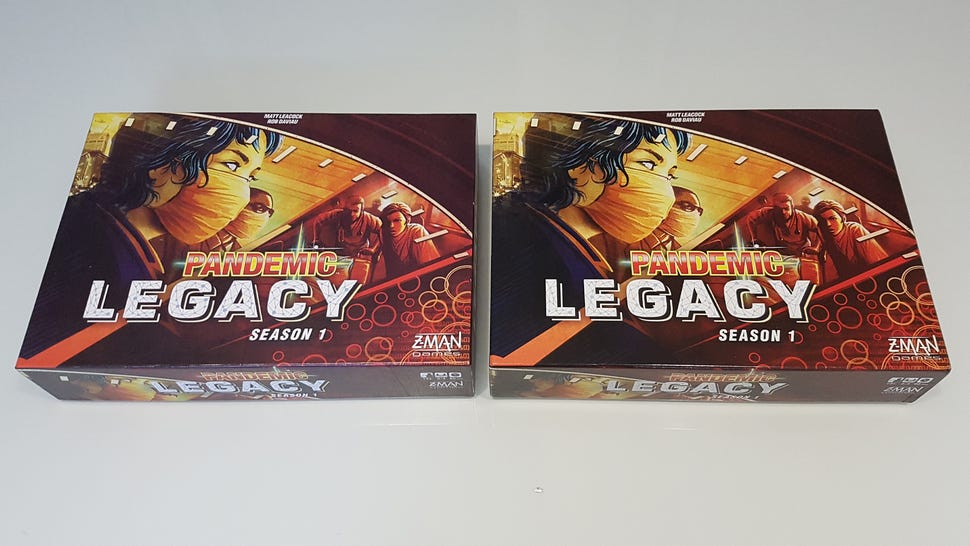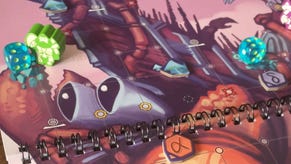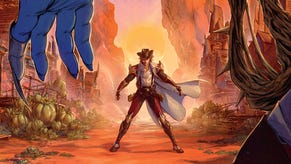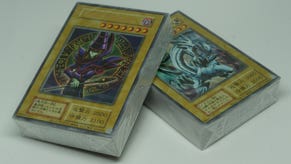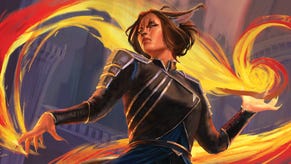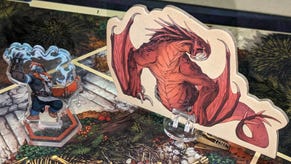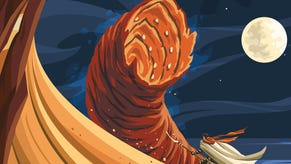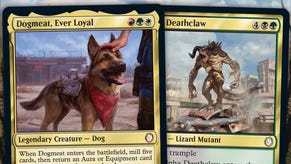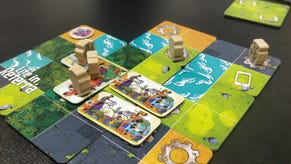Fake board games: the counterfeits of Pandemic, Catan and more putting happiness, health and the hobby at risk
“We’ve had some real shocks where you feel like you have to wash your hands immediately.”
When tabletop gamer Sam Eley added to his already substantial board game collection with a new purchase from eBay, he expected it to arrive ready to play. Instead, what turned up was a cheap imitation.
“I bought a copy of Secret Hitler, which I thought was genuine but was a terrible counterfeit version missing half the cards needed to play the game.”
Eley confesses that this wasn’t the first time he’d encountered fakes.
“I've bought three counterfeit games online. Two of them were fake versions of Saboteur and Lost Cities that I bought when I was a student. I think I might have known they were counterfeit and not really cared because I was relatively poor. All three of them were very shoddy quality but only Secret Hitler was actually unplayable.”
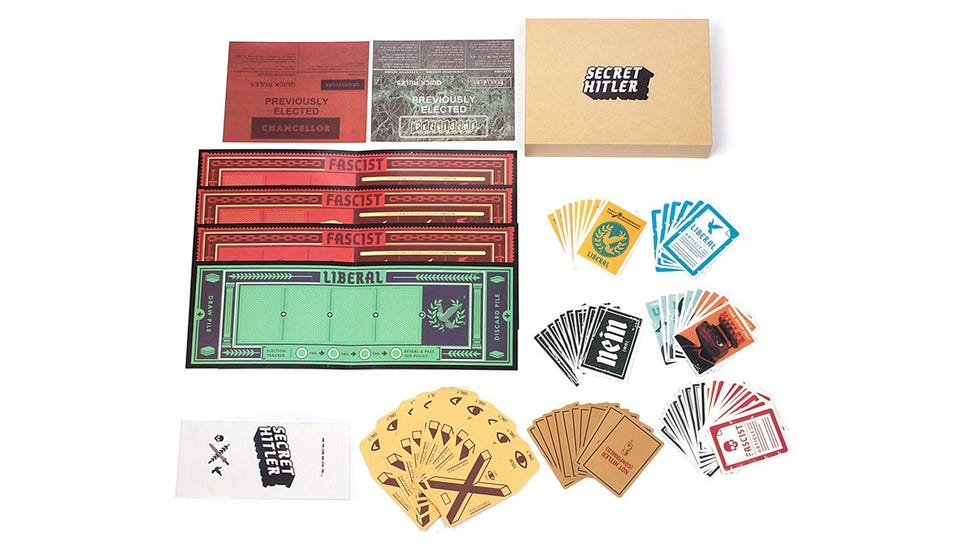
From the negative reviews left by disappointed buyers, Eley’s encounter with a poor imitation of Secret Hitler is not uncommon. Unofficial versions of the party board game from sellers based in China are still available online despite complaints that date back to 2016, when game forums started lighting up with reports of crappy quality. One of the earliest reviews for the “Cenblue” version of Secret Hitler on Amazon is pretty clear on the copy’s limitations: “The game is not playable because the cards in the box wrong. For example, there are 22 Facist [sic] cards and not one Liberal card.”
While counterfeiting has a long history, in recent times it’s become especially easy for factories in Asia to make, sell and ship illegitimate copies of goods through online marketplaces. As a result, the overall global black market for fake products is huge, with some estimates putting the overall figure in excess of £380 billion a year. Fakes now exist for all types of goods, from dicey-looking watches touted by beach-wandering chancers to untested baby milk formula. What all these things have in common is that they’re cheap imitations which pretend to be genuine by using the logos, names and images of official companies.
Counterfeiting really has become a critical industry issue, and has really done a lot of damage.
Although no-one has calculated yet exactly how far fakes have crept over into tabletop games, evidence suggests that the problem is growing. One of the earliest public statements about the issue came from Wizards of the Coast, which reported in 2004 that examples of fake Magic: The Gathering cards had appeared in circulation. In 2014, the company reported further investigations resulting in the discovery of a factory in China printing and distributing a “substantial volume of counterfeit cards”. It also deterred several smaller distributors and put a stop to the activities of at least one key figure in North Carolina who had allegedly been acting as the main conduit between the US and China.
Up until that point, it had been easy to blow off counterfeiting as a few obvious knock-offs with laughable spelling mistakes in the instructions. Since 2014 though, it’s become clearer that it’s a problem which poses a threat to the survival of manufacturers and the enjoyment of players. One of the companies which has been vocal about the need to tackle fake games is the international distributor Asmodee, which owns a wide range of publishers such as Fantasy Flight Games, Z-Man and Catan Studios, and is responsible for popular board games including Pandemic, Catan and Ticket to Ride.
In a 2018 interview with ICv2, the then-CEO of Asmodee’s North American arm, Christian Peterson, was candid about the danger to games like Pandemic. “It’s a significant problem, perhaps even an existential one. We knew that counterfeiting was becoming a major issue last year, but it really has become a critical industry issue, and has really done a lot of damage.”
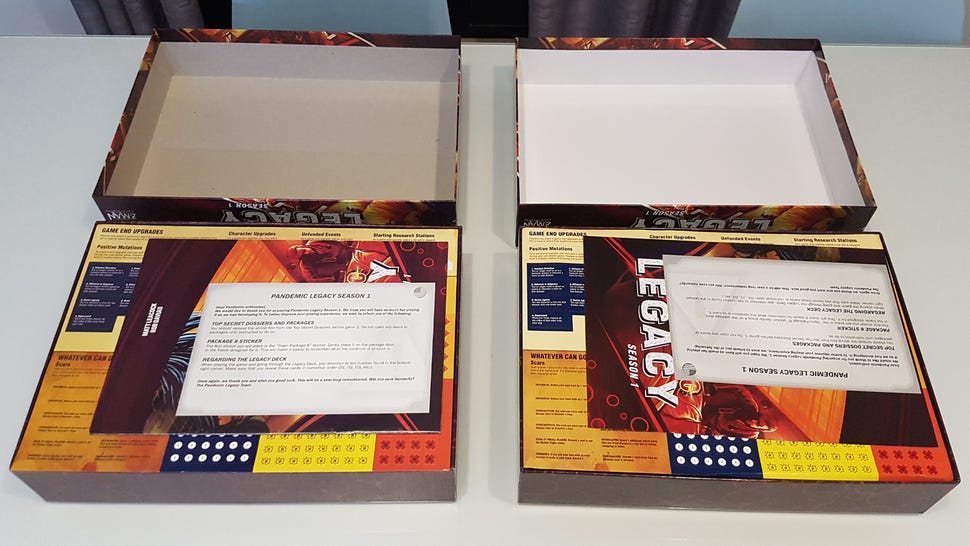
How are fake copies of popular board games coming into circulation? Asmodee UK’s marketing manager, Ben Hogg, picks up the thread today.
“Mainly it comes from Asia. We think it’s likely that there are rogue factories getting hold of the plans or getting a copy and then reproducing it. A lot goes into it because they will scan the box and then have to find the corresponding fonts so they can reproduce it on their own print machinery and recreate the text. It’s really well-organised and obviously profitable.”
For Hogg, since Asmodee became aware of fake versions of popular beginner board game titles like Catan and Pandemic in around 2016, he’s had an unpleasant education.
“You get hold of some of these counterfeit versions, open the bag and think, ‘God, what’s that smell?’ We’ve had some real shocks where you feel like you have to wash your hands immediately.” He adds that “there’s a safety issue as well, because these products aren’t safety-tested - so we don’t know if there’s lead in the pieces or bits of glass in there”.
There’s a safety issue because these products aren’t safety-tested - so we don’t know if there’s lead in the pieces or bits of glass in there.
Perhaps the most startling thing has been the realisation concerning the scale of the problem. When Hogg discusses the copies of Pandemic Legacy which made their way to players, he outlines “how dedicated the counterfeiters are”.
“Depending on what you do within that game you might have to open package six or four and take what’s in there, so there’s loads of pieces and you don’t know exactly what each player will use," he explains. "The counterfeiters have gone to the trouble of understanding all these pieces and then reproducing them in a poorer quality and with elements missing. It’s not just copying cards.”
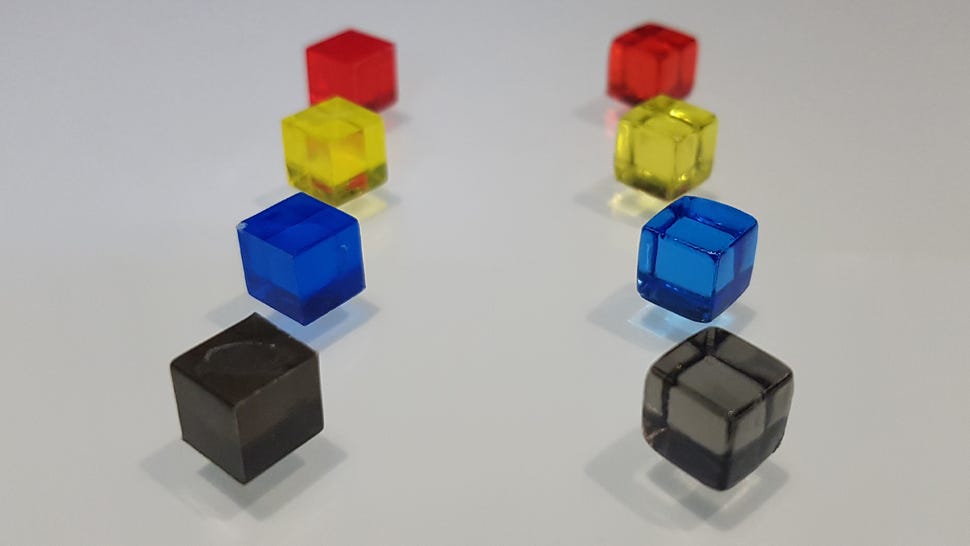
This reproduction of detail was something also noticed by Renegade Games Studios’ president, Scott Gaeta, whose suspicions about fake copies of the company's popular deckbuilding card game Clank! on Amazon were confirmed when he made a test purchase that turned out to be counterfeit. Following his observation in March 2018 that sale prices had dropped by around 50%, a customer complaint also suggested tell-tale inconsistencies in quality. Gaeta remembers that when he got his test purchase, “You could tell that they didn't just scan the rulebook pages and reprint it. Somebody retyped all the text into a file, but it was obviously not a native English speaker and there was lots of grammatical mistakes and typos.”
Thankfully for Renegade, its problems with Clank! were more limited than those affecting other publishers. “We had heard of issues in the industry, certainly of Asmodee’s problems with Pandemic and Catan, but this was the first time for us," Gaeta says. "We were able to shut it down fairly quickly but some of the damage was done to the price on Amazon, which can take months to recover because of the way the algorithm works.”
As the world’s biggest online retailer, Amazon is one of the main ways that players, particularly those approaching the hobby for the first time, get their games. Although products purchased through Amazon itself have a good reputation, items bought from third-party sellers (also known as Fulfilled by Amazon, or FBA) are typically less closely monitored and have become problematic for many companies like Renegade.
You could tell that they didn't just scan the rulebook pages and reprint it. Somebody retyped all the text.
One reason for this, and an important consideration when buying from FBA sellers, concerns the way Amazon manages stock. “One of the challenges is that when FBA sellers send in stock, it gets commingled," Gaeta explains. "So they may be based in the Midwest of the US and so they send their stock to a Midwestern warehouse. But if somebody who lives on the West Coast buys their product, they might just ship a copy out of a West Coast warehouse, which wasn't really their stock. Because it's a common retail item they just commingle the inventory and it may appear to come from a different seller.” This means that for some items, although you may purchase from one seller you could ultimately receive stock introduced into the supply chain by another, less scrupulous, person.
In conjunction with Amazon, Renegade acted quickly and was able to discover the identity of the one seller they found offering fake Clank! games. They removed the listings and although the seller tried to relist the same items several times over a few weeks, they eventually gave up. Gaeta believes that “they'd shipped in just a few hundred copies, so it wasn't tens of thousands”. For the publisher, at least, taking action and alerting the games community proved effective, although it did highlight that fake games are more than just an urban myth. On the issue of volume, Gaeta adds: “When these guys bring in copies, they're not necessarily bringing in ten thousand copies at a time. In a lot of cases they'll test the waters first - because even though they're counterfeit, they're not free to produce.”
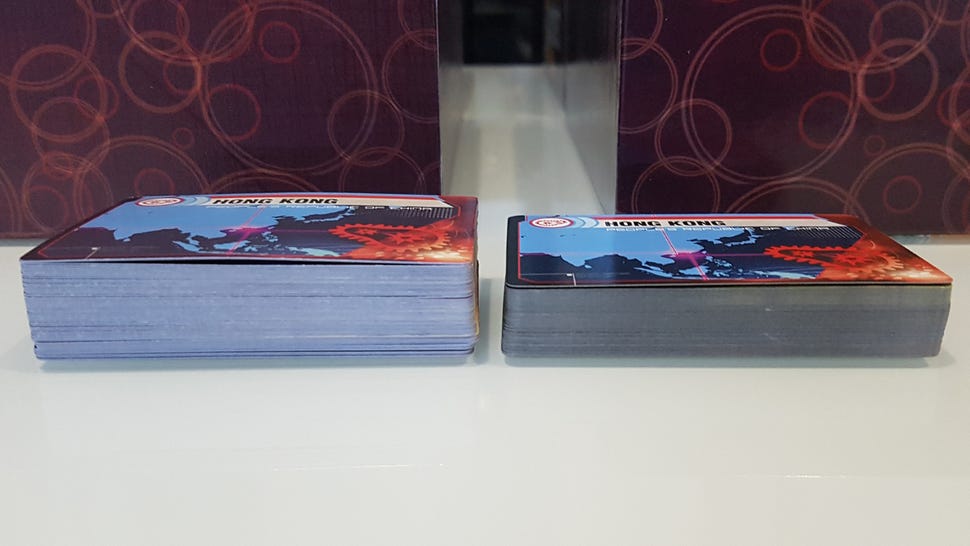
While Amazon didn’t provide a comment to Dicebreaker when contacted about the issue of board game counterfeits, a press representative from eBay did tell us that it invests in anti-counterfeiting efforts: “Consumers can shop eBay’s 1+ billion items with confidence, knowing we have key partnerships and processes in place with rights owners, law enforcement and government officials to ensure a safe shopping experience.”
For any dissatisfied board game buyers, eBay also suggested that it takes any complaints reported seriously.
Reporting sellers of fake products is certainly one response but, unique to the board gaming community, helpful remedies have popped up elsewhere too. Across social media, there are scores of groups dedicated to outing the aliases of counterfeiters, while entire threads on the r/boardgames subreddit are given over to in-depth discussions of the differences in counter quality and inlay printing. Many of these posts come from people who want to protect their hobby; by teaching others how to recognise fakes, they also protect the games they love and encourage others to play and keep returning.
Instead of just producing new fake card games sellers have come up with their own variations of games such as Cards Against Humanity.
In addition to the board games community’s response to fakes, the phenomenal growth of the hobby in recent years may even have generated a new craze among counterfeiters. Dipinn Verma, an analyst for Pointer Brand Protection - a tech company which works with brands to monitor and enforce against online counterfeits - mentions how it now sees examples of card-based games which use the trademarks of its clients on non-existent products.
“Instead of just producing new fake card games sellers have come up with their own variations of games such as Cards Against Humanity," Verma observes. "They produce and sell games where the mechanic stays the same, i.e. ‘Cards Against,’ but then replace ‘Humanity’ with a brand or other form of copyrighted material.”
Verma adds that in addition to copying physical products, game counterfeiters have also breached the offline-online divide by “distributing digital versions of games online, enabling anyone to print them at home. This means they can assemble the final product themselves for their own use or so that they can sell it on to their networks.”
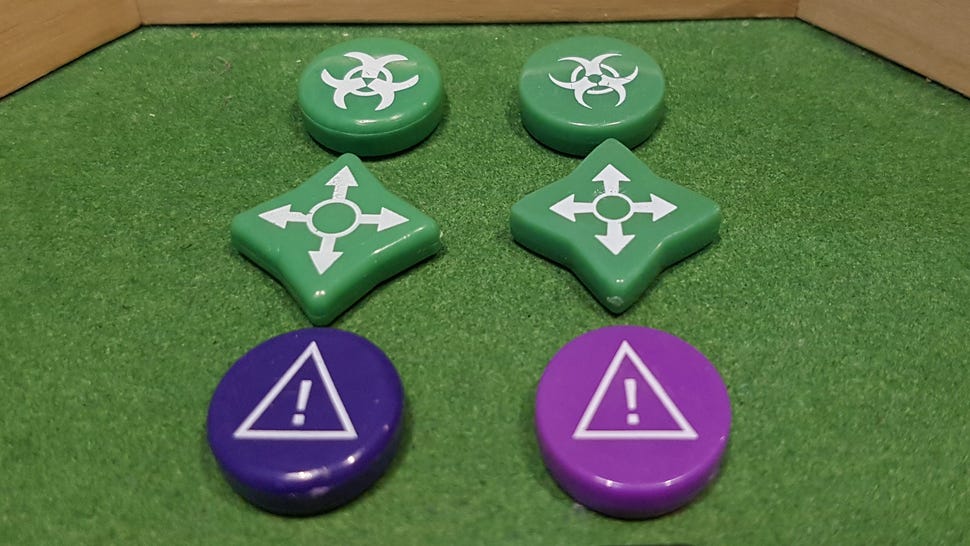
While these cut-price fakes and digital copies may tempt or fool certain elements of tabletop gaming’s fanbase, ultimately the question is whether games with mistakes, poor printing and incomplete contents will satisfy the desires of games buyers. For Sam Eley, it didn’t turn out to be worth it.
“It's definitely made me wary where I buy from. Amazon and eBay are definitely the worst, and it's usually international sellers that aren't trustworthy. I buy the vast majority of my games from [UK online games sellers] Zatu and Chaos Cards now. Fakes are obviously a bad thing as the industry and designers are losing out on money. It's scamming consumers and possibly even putting off people new to the hobby who don't realise they're buying a counterfeit.”
